What Causes Hot Water Tanks to Fail?
You go to wash your hands one evening, and you notice that the water isn’t hot.
Hmm...
It’s time to relax, so you decide you’ll investigate later. The next morning, you go to take a shower and… Before you can finish, you’re drenched with a cold conclusion. Something is definitely up with your hot water tank.
You check it out, and discover one or a few of the following things:
- There’s water leaking from the top
- There’s water leaking from the bottom
- The unit is making strange noises
- There’s an unpleasant smell
- The pilot won’t light/stay lit
- The burner won’t stay alight
- Some other frustrating indication that your hot water tank is failing.
Sometimes, this sort of thing can’t be prevented. Ageing appliances are sure to give out eventually. But more often than not, you can avoid a cold shower by preparing yourself with the following knowledge.
This article explores 3 top causes of water tank failure. These issues are common across most types of water heaters, so don’t worry if you’re wondering whether this could apply to your home.
Anode Rod Deterioration
The anode rod is a critical feature of most hot water tanks, with the exception being those rare few with plastic-lined interiors. Water tanks are traditionally fabricated with metal, and when metal and water (along with other minerals) mix, you get rust and corrosion.
Excessive rusting can cause a range of different problems when it comes to hot water tanks, including leaking. Keeping the anode rod of your tank in good shape can extend the life of your unit, sometimes even by twice its expectancy.
Problem: the Anode Rod is Shot
The anode rod is in your tank to attract various elements in the water. Without the anode rod, these would instead lead to the corrosion and rusting of your tank. Anode rods are a fantastic invention but are not designed to last as long as the hot water tanks that they are used in.
Solution: Replace It
Most anode rods should be replaced every 6 years or so. However, you should check your anode rod along with the rest of your water heater for maintenance needs and functionality at least once a year.
Anode rods can be replaced without professional help, but this should not be attempted without proper knowledge of how to do so safely.
Thermal Expansion
When water is heated, a process called thermal expansion occurs where water increases in density and volume. If a water heater is completely filled with water, and that water is heated, it may create a situation where the additional volume of the hot water creates stress on its container.
Problem: System is Stressed
This is often more distinctly an issue with closed systems, where there is a one-way valve that prevents the excess volume of water from flowing back into its supply. If thermal expansion occurs, the water will need to find somewhere else to go.
Results could include anything from a damaged relief line to a leaking water tank. Problems with pressure fluctuation due to thermal expansion could even stress the piping of the rest of your home.
Solution: Install an Expansion Tank
If your water heating system does not already include an expansion tank - an additional chamber for excess water to be released into - you should seriously consider having one installed. This will not only relieve pressure fluctuation and subsequent damage in your water heating system but could prevent the need to replace your water heater.

Improper Installation or Sizing
You would hope that something as essential as your water heater would be properly installed with care from the start, but, unfortunately, mistakes can be made. (Just not when you hire Right Time - we guarantee it.) If your water heater was not properly installed or fitted, issues could compound until signs of water heater failure show up.
Problem: Water Heater is Too Small
If your water heater is too small for your home and its needs, you may come across a variety of issues. A water heater that is too small will need to work much harder to produce enough hot water. This can create additional stress to the system (and more maintenance/repair costs) as well as a higher energy bill.
Solution: Add a Point-of-Use Water Heater
Thankfully, the market has expanded to include many different options for heating your water. A great way to supplement your home's hot water supply is to add a point-of-use (POU) water heater to an area that uses a lot of hot water, such as your bathroom or kitchen.
POU water heaters are tankless, so they do not need much room to operate. Installing a POU unit could not only save your central water heater from excessive use and strain - it could also help you save on your hyrdo bill, as these water heaters are tankless and higher in energy efficiency.
Maintenance = Prevention
Overall, the best way to ensure that your water heating system remains functional is to have a maintenance check completed at least once a year. This ensures that your water heater is running its best, and can flag initial problems before they become larger issues. Be sure that your maintenance check is performed by a licensed technician - giving your water heater the “once-over” without proper training will likely mean that things get missed.
We hope that you found this article to be helpful and informative, but please don’t hesitate to contact us if you’d like to learn more about water heater maintenance. Get in touch with us at Francis for the best service around.




